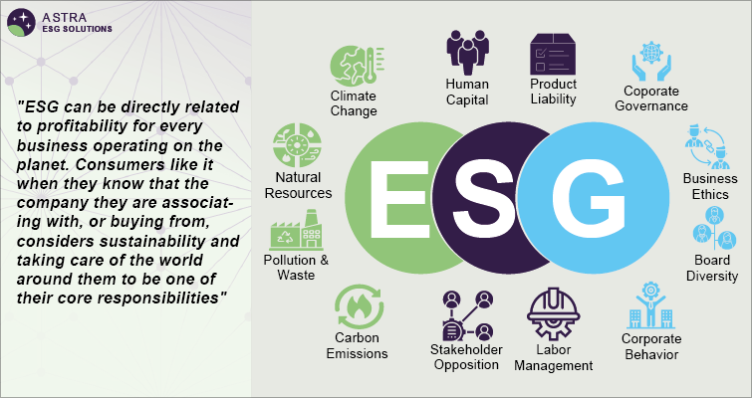An uptake in environmental, social and governance (ESG) investments in the online tutoring services industry has redefined the global landscape. The onslaught of the COVID-19 pandemic furthered the demand for online learning, a trend that gained ground globally. The choice of place to earn degrees and certifications has notably impacted the carbon footprint.
For instance, adopting virtual learning led to a significant reduction in energy consumption across school buildings and provided learning for all with internet access. Although online tools play a part in reducing pollution, the emergence of digital pollution has augmented the carbon footprint. In common parlance, energy used to run devices and power the wireless networks lead to carbon dioxide emission. The rampant pandemic compelled students, tutors and parents to bank on virtual classes and redefined the education landscape. Demand for seamless online tutoring services has shifted the focus to ESG goals and performance.
Key Companies in the Online Tutoring Services Industry
- Ambow Education
- ArborBridge
- Beijing Magic Ears Technology Co., Ltd.
- BYJU’S
- Chegg, Inc.
- Club Z! Inc.
- iTutorGroup
- Qkids Teacher
- Varsity Tutors
- Vedantu.
Environmental Perspective
Learning at home has become a trend among Gen Z and millennials across emerging and advanced economies. A notable reduction in pollution and emission from transportation has fostered the environmental profile of online education service providers. According to Bloomberg, almost 60% of kids take a car to school.
Moreover, Ireland’s Environment Minister Eamon Ryan infers that a dip in parents driving their children to school by 30% would benefit everyone. Industry leaders are exploring opportunities to minimize environmental impact and emphasize sustainable operations.
In 2022, Chegg used the Greenhouse Gas Protocol Corporate Accounting and Reporting Standard to perform its second annual greenhouse gas emissions analysis. Besides, its 2020 and 2021 inventories comprised scope 1 (direct emissions from energy generation, heating and cooling) and scope 2 (indirect emission emanating from purchased electricity) emissions. The company helped combat pollution and minimize waste by providing students with e-textbooks and textbook rental services.
Social Perspective
Edtech giants are providing a slew of personal development and wellness programs, including tuition reimbursement, health upsides, paid parental leave, student debt payment, professional leadership coaching, childcare credits and mental health support.
Stakeholders are promoting diversity, equity, inclusion, leadership succession, retention and employee engagement. Several studies have noted that companies with employee diversity are likely to have above-average profitability. In October 2021, Byju’s, the Indian edtech multinational company, announced hiring AI and ML specialists in the U.S., the U.K. and India. It rolled out Byju’s Lab to cash in on the global talent pool and explore new technologies and innovative tools. A deeper assessment of diversity, equity, employee engagement and pay equity can notably influence social goals.
Governance Perspective
A transition to the digital world to minimize energy consumption has underscored the significance of smooth corporate governance, ethical behavior, transparency, board diversity, executive pay, anti-competitive policies and corporate governance.
According to Chegg’s ESG report 2021, 50% of directors are women, while 20% belong to underrepresented ethnic groups. Besides, 9 out of 10 directors are independent and the company asserts its executive pay practices are in line with shareholder interests. Edtech behemoths have fostered business activities to enhance quality education, good health, economic growth and reduced inequalities. Virtual education providers have bolstered their financial systems and propelled value relationships. For instance, in the Q1 Earning Release 2022, Nerdy announced 2022 EBITDA guidance for Q2 and the whole year, suggesting an infusion of funds into direct-to-consumer and institutional segments to boost “always on” learning solutions. In November 2022, The company claimed it had no debt with USD 106.4 million of cash on its balance sheet, alluding to sufficient funds to achieve adjusted EBITDA profitability by 2023 end.
With schools and educational institutions leveraging online tutoring services to supplement traditional schooling, boosting product offerings and investing in innovations could be the go-to strategies. Integrating into the foundation of ESG could deepen the commitment to sustainability. To illustrate, in January 2022, Khan Academy joined forces with SBI Foundation to expedite last-mile access to education in Punjab, India and underpin content localization to enable students to learn in their language. These dynamics indicate the online tutoring services market could witness an impressive CAGR of 14.7% through 2030.
Need expert consultation around identifying, analyzing and creating a plan to mitigate ESG risks related to your business? Share your concerns and queries, we can help!
You may also like
-
Latest Technology: Why Are Mobile Games Changing the Way We Interact with the Digital World?
-
The Evolution of Storytelling in Video Games: From Pixels to Immersive Narratives
-
10 List of the Cheapest and Best Curved Type PC Monitors in 2024
-
The Role of Regulation Technology (RegTech) in Monitoring Online Color Prediction
-
How to Navigate Google Maps Transit Directions

